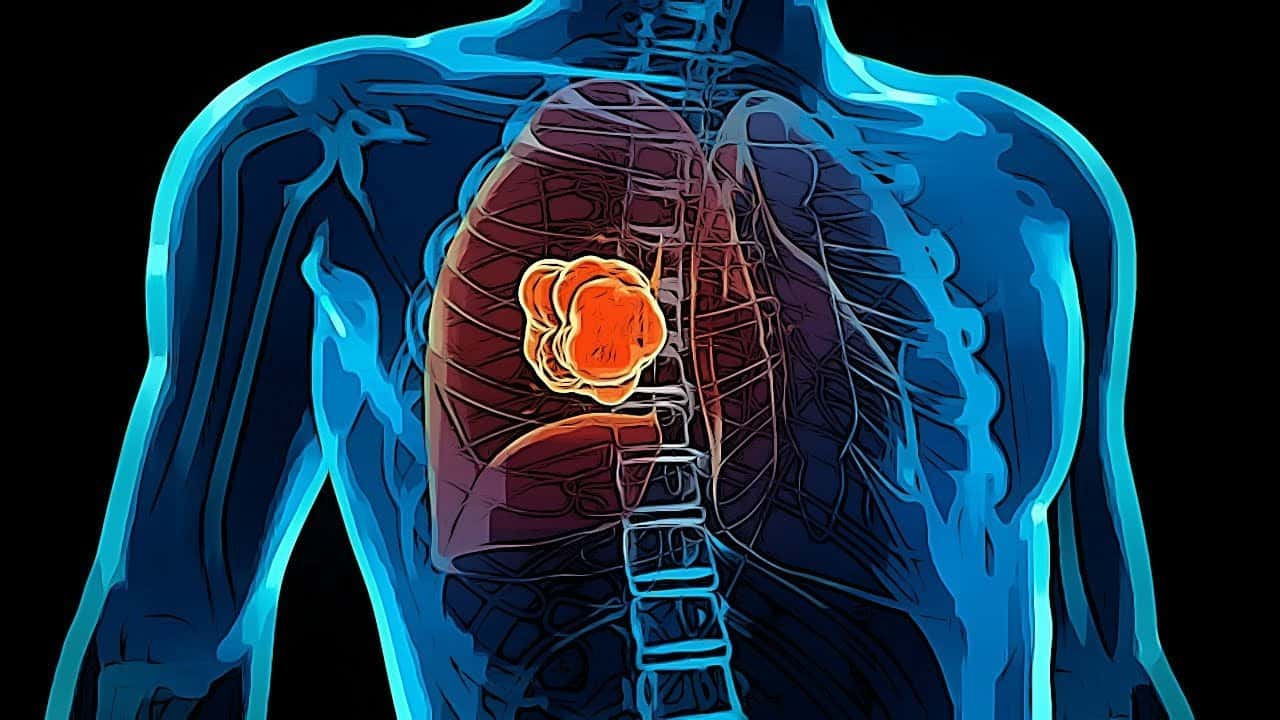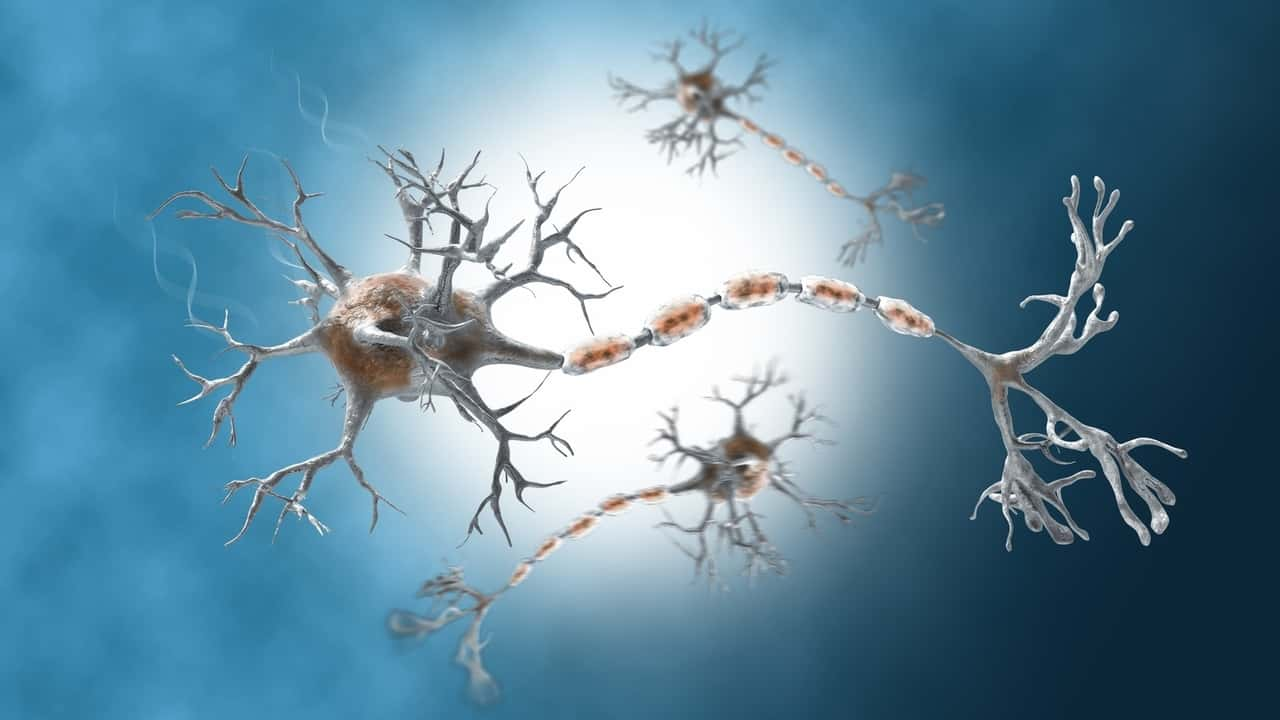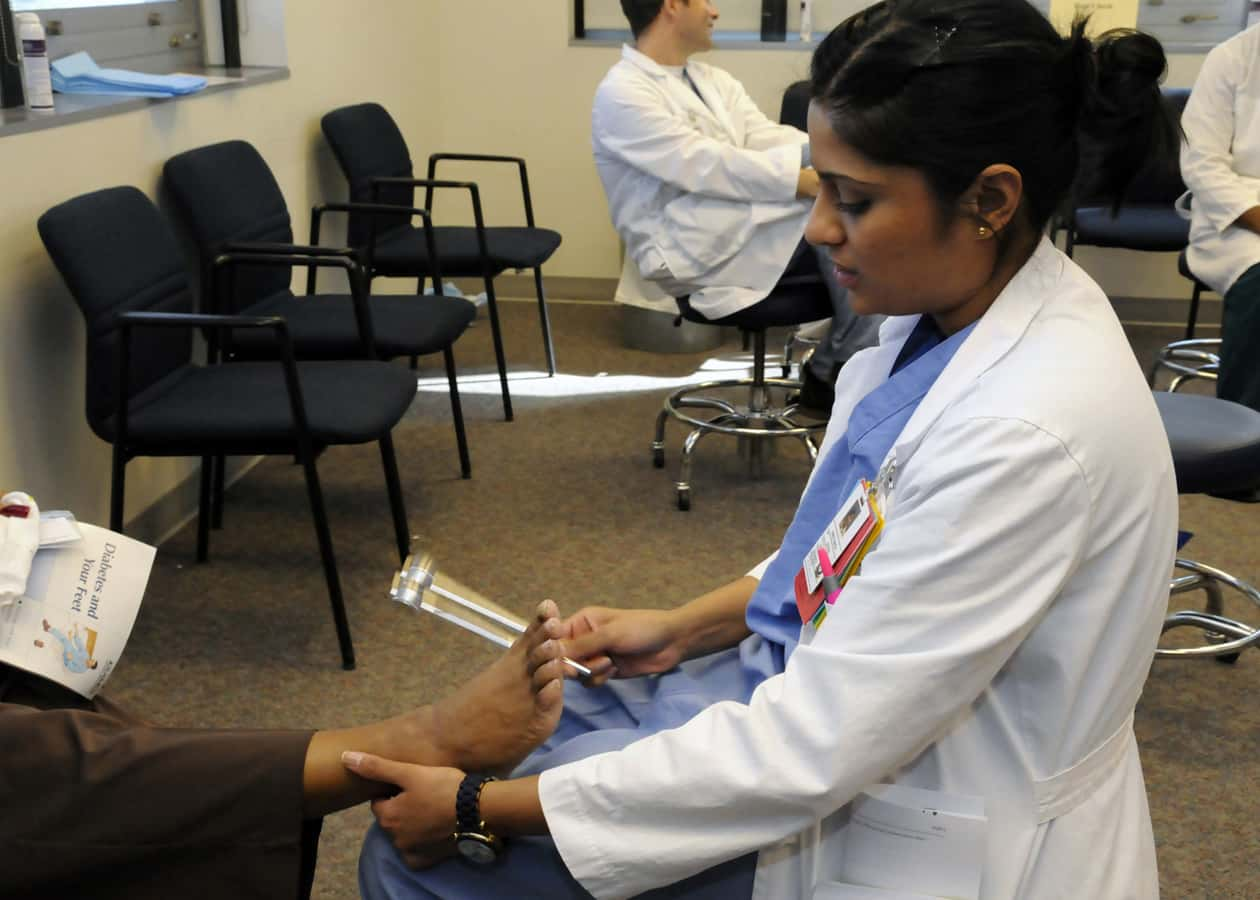If you've seen the TV series House, you'll know rare conditions are often the most interesting thing in medicine. Diagnosing and treating a rare condition utilizes a combination of both medical knowledge and detective skills.
Recently a group of medical professionals took to Humaverse to share their input on rare conditions they've encountered during their time in practice.
We confess that we'd never heard of most of these illnesses before, either!
Don't forget to check the comment section below the article for more interesting stories!
#25 A Life-Saving Moment!
Emergency doctor referred a guy to me who had a platelet count of 2. The guy looked terribly sick, abdominal pain, petechial rash, feverish, diaphoretic, a bit confused and drowsy too. Talked to my boss who said to give him prednisolone and he'd see him tomorrow, but I was convinced this guy had a really rare condition called TTP (Thrombotic Thrombocytopenic Purpura). So I called the major hospital in my area and sent him to their ICU (Intensive Care Unit) for a procedure called plasma exchange. I ordered a test called ADAMTS13 to prove the condition. Still have a paper copy of the result (patient had none of this chemical) because it's the best diagnosis I've ever made. Helped save his life!

#24 TB Would Have Been Good News
We had a good case a few years ago. An otherwise healthy, 40-year-old migrant worker from central America started coughing up blood intermittently. Everything suggested tuberculosis: history (from an area with lots of TB), chest x-ray looked like tuberculosis, illness script looked like tuberculosis... but his tests for it were all negative. I decided to test his urine on a whim to rule out pulmonary-renal pathologies.
Ding, ding, ding! Blood. Loooots of blood. The patient never noticed it, and his kidney function was superb, so this was a tricky diagnosis. Turns out he had granulomatosis with polyangiitis (Wegner's). Kinda a sad story, because TB is largely curable, but with Wegner's, he'll be on chemo for a loooooong time with this disease. I'm glad we caught it before irrevocable damage to his organs, though.
#23 The Wife Leads To The Husband
I am in Internal Medicine. Mid 40's female patient of mine has an appointment to discuss vaginal bleeding after intimacy. She's had a hysterectomy and so had no periods. She was, of course, concerned about some sort of a cancerous issue, especially since there was no pain or discomfort when she noticed the bleeding.
Full work-up, she's perfectly healthy. We have a mystery! Once she is cleared, I ask about her husband. Lo and behold, he had blood in his ejaculate.
Now, I've seen Reddit posts about hemospermia (blood in the ejaculate), so don't freak out if you've had it before. It's actually not that unusual. But in RARE cases, it can be a sign of underlying prostate cancer. In this case, we did eventually diagnose prostate cancer in this upper 40's male. He had his surgery and is doing well today.
My father was in medicine and he used to talk about the elation when he would diagnose something that other doctors missed. That feeling was short-lived, replaced by that feeling of "Oh no!" when you realize your patient has a life-threatening illness. It's an odd profession we're in...
#22 The Tick In The Box
The patient came in with an itchy rash that would not go away for weeks and new swelling of the mouth and tongue. She had "hives" all over her body and the only thing that had helped was repeated steroids. The patient was a mid 40s female who worked with dogs, so we assumed that she had a new allergy to pet dandruff, fragrance in a shampoo, flea medicine, something. Discharged her home with an appointment for the dermatologist to do a biopsy of the lesions.
Later that day, she turns back up in the Emergency Department with swollen lips, increased rash, and trouble breathing. She started having these problems 15 minutes after eating a roast beef sandwich. Someone on the team remembered that she works with dogs and asked if she'd had any recent tick bites. Sure enough, she had been bitten by a tick a few weeks ago and identified a picture of a Lone Star Tick. Turns out she had developed an allergy to red meat after a bite from that tick.
This allergy is called alpha-galactosidase allergy and is a reaction to a carbohydrate carried on the outside of cells (think like the carbohydrates on red blood cells for ABO blood type) by all other mammals except humans and monkeys. The tick had bitten one of these and kept some of the protein in its digestive system, and then after biting her, her body developed antibodies to the carbohydrate causing her to have a new allergy to meat.
#21 Rat Nearly Ruins A Life
When I was on pediatric rotation, we had a young girl come in with a rash on the bottom of her feet. She was also having headaches and joint pains. We spent close to an hour interviewing the girl and the mother. Her history was essentially negative. Finally, as a last-ditch effort, I pulled out the weird questions you ask in med school. I asked if they had any unusual pets, as we had already ruled out normal pets. They said actually they did just return a pet rat for biting her. They thought that this wasn't really relevant. Bam! Rat bite fever.
#20 The Cat's Cry Is A Condition
6-month baby not getting bigger and dropping off the growth charts. The baby wouldn't move and cry all day long. I couldn't figure it out. I was making preparations to transfer the baby to the university hospital for admission. One of the clinic nurses commented that the baby's cry sounded like a cat.
Ding, a bell went off in my head. Cri du chat syndrome or cat's cry syndrome. Very rare. I looked it up and the baby had a high probability of having it.
I referred her to genetics and they confirmed it. The attending called me and marveled at my clinical skills. I chuckled and told him the nurse diagnosed it.
Good news, the baby had a small deletion of the 5p chromosome and managed to stay somewhat healthy and functional.
#19 Human Mad Cow Is A Rarity
Morning report was a good one today. We had a 59-year-old male come in with lower leg swelling. Within 3 days he becomes confused, febrile and stiff. We put him in the ICU thinking meningitis and got some Csf cultures and started antibiotics. Two days later the cultures were still negative and he wasn't improving. His wife then says this whole event seems similar to the patient's mom. She had Creutzfeld-Jakob disease and passed from it. It's a 1 in a million (literally) diagnosis and our tests are still coming back for it. The really rare case most doctors will never see.
#18 Bosma Syndrome Isn't So Bad
Baby born without a nose and with non-functioning eyes. Diagnosed with Bosma Syndrome. Kinda crazy, saw the baby a few months later and it was doing fine. Children with Bosma Syndrome grow up without any cognitive disabilities, it's very interesting.
 Plusstid
Plusstid
#17 Lucky Guess Gets To Tumor
This was not rare in the traditional sense, more like a missed diagnosis. A woman came in with severe opiate withdrawal and some shortness of breath. Because she was so insistent about how miserable she was everyone sort of wrote her off to drug seeking. During the morning rounds, I decided to do a thorough physical exam. Lo and behold, she has a hard non-mobile clavicular lymph mode...it was so big that it was impossible to miss if you just did the exam. Immediately we got a chest X-ray and then act. There was a perihilar mass. After a biopsy, we learned it was small cell carcinoma (lung cancer).
 YouTube
YouTube
Sign Up For Our Newsletter
Stories that matter — delivered straight to your inbox.
#16 Bacteria Ravages Young Girl
We had a case a couple of years ago that still gives me chills whenever I think about it. Younger girl goes to her primary care physician in a small town outside of the bigger city where I live. Presents with persistent headaches, which just started a few days ago. No past medical history of anything similar that stood out as relevant. Unable to diagnose or treat her headaches (which were rapidly growing more severe), she was sent to our state's Children's' Hospital for evaluation. We ran her through the typical gauntlet of testing for common causes, still with no clue.
Nothing came up on blood cultures either. At this point, she was in the PICU rapidly deteriorating, with high fevers and periodic losses of consciousness. After eliminating all the horses, we had to start looking for zebras... and quick. We collected a CSF sample for culture thinking it might be one of the rarer forms of bacterial meningitis. While this was cooking (cultures usually take at least a few days) we tried again to get any other possible info from her parents.
For the first time, they mentioned that they had visited a local waterpark a week or two before the girls' symptoms started. And this was in the middle of summer. For any Peds doc, those words make their hearts sink. Sure enough, the cultures came back positive for Naegleria fowleri, the pathogen responsible for Primary Amoebic Meningoencephalitis (PAM).
Up until that point, I don't think there was a documented case of a patient being diagnosed with PAM who survived. It's the incurable brain-eating amoeba that lives in warm stagnant water and can enter through the cribriform plate at the top of the nose if the patient gets water up there, which happens all the time at waterparks.
Anyway, long story short, we basically cook up a (very non-FDA-approved) drug cocktail as a sort of hail mary attempt at fighting this infection, as nothing else in any other case had ever worked. In addition to this, we basically stick her in a Mr. Freeze chamber, lowering her body temp to below what N. fowleri can usually survive.
Unfortunately, most people can't survive it either. But for some reason (though in an induced coma the whole time), she steadily improved. When we took her out of the deep freeze and allowed her to wake up, it was incredible. She was alive with no apparent neuro/cognitive deficits, and the new cultures showed no growth of N. fowleri. It's not too hard to figure out where this occurred, as it may still be the only successfully treated case in the US.
#15 Faking Illness Is An Illness
When I was an intern, we had a 22-year-old man with persistent abdominal pain, all studies negative. His symptoms were unexplained. His mother was constantly at his bedside. His medical history, which was extensive according to his mom, included multiple hospital stays with no definitive diagnosis. I noticed that he would frequently take ill after meals, which his mother brought from outside the hospital. It eventually became clear that he was a victim of Munchausen by proxy. His mother was making him ill. I'd had a patient with Munchausen's when I was in medical school (she was injecting her own feces into her IV), so I was particularly tuned in. Both cases were very sad.
#14 It Wasn't Child Abuse
Wolman Disease is a genetic disease that affects about 1/200,000 kids, with a terrible outcome.
It leads to calcification of the adrenal glands, which is how I picked it up on a chest X-ray on call (I'm a radiologist). The kid had a failure to thrive and a big spleen so I brought it up. He got further testing which confirmed the diagnosis.
Bottom line, don't forget to look at the adrenals or ribs on peds X-rays! Don't miss that neuroblastoma or child abuse case... or Wolman Disease.
#13 Epilepsy Brings Religion
My first rotation as a medical student was psychiatry. I was really nervous and made a flashcard for each psych condition and a list of diagnoses to consider. One of the patients being discussed on rounds was psychotic (think: KGB is after me!), but was otherwise put together. He was really into doing art and was very, very religious. I looked at my flash card for psychosis and casually mentioned that we should consider temporal lobe epilepsy, which presents with religiosity and exaggerated artistic ability. An EEG showed that he had it.
I've caught a few zebras since, but that was my favorite.
#12 The Not So Crazy Old Lady
An elderly lady came into my practice asking if there was anything she could be given to help her sleep as the Irish terrorists in the flat below were keeping her awake at night. She was reassured that terrorists were not planning to blow her up, or Cannock (a small inconsequential town in the West Midlands), for that matter.
On the second visit, she insisted that they were going to blow something up soon, and expressed paranoid thoughts.
A full mental health review was conducted by the GP and the community psychiatrist. She came up clean. That's when we contacted the police. A couple of days later the flat below our patient was raided and found to be full of bomb-making equipment and real IRA members.
"How often have I said to you that when you have eliminated the impossible, whatever remains, however improbable, must be the truth!"
 YouTube
YouTube
#11 Herpes Leads To A Change In Personality
Ooh, I've got a few good ones, but I'll share one in particular. I can't remember all the details though so bear with me. I'm at a big tertiary hospital and had an elderly veteran brought to us one day after being found unconscious in a park. He had alcohol in his system and a quick look at his records showed that this was an ongoing problem with him.
He was a sweet old man who was very grateful for our help, up until day 3 of his hospitalization. He developed pneumonia-like symptoms and became somnolent for a few days. Then, out of nowhere, he became very inappropriate - he begins grabbing the nurses and propositioning them sexually, touching himself (or at least attempting to), and constantly licking his lips in a lascivious manner when anyone even looked at him.
He went from a sweet old man to a deviant almost overnight. We even had to wrap his hands up in bandages to stop him from touching himself and others. Oddly though, he hit on anyone and everyone (women and men) except for me. I guess I wasn't his type. Lol. We ended up diagnosing him with Kluver-Bucy syndrome, caused by HSV encephalitis (herpes). Symptoms include hypersexuality and hyperorality. It's pretty rare and I haven't seen it since, but as you might imagine, it left a lasting impression on me. He improved with treatment though and was incredibly embarrassed after finding out what he had done.
#10 A Tumor Is Not A Vitamin Deficiency
I don't know if it's rare but I had a patient come in with a rash, GI symptoms, and forgetfulness. It turned out she had pellagra. Pellagra is a deficiency in niacin and is typically characterized by the 3 D's: dementia, dermatitis, and diarrhea. Diarrhea and rash were what struck me the most. I believe it turned out she had a carcinoid tumor. I referred her out. I wouldn't say I made the diagnosis, the specialist did, but I did mention it in my differential and was highly suspicious.
#9 Guillaume-barre Syndrome Shows Up Twice
I remember being taught that it was rare, but I've seen 2 cases of Guillaume-barre syndrome in 3 years, so I think it actually is probably not as rare.
Both times it was the same: vague history of weakness or unsteadiness. On questioning, it started definitely just with the lower legs and was affecting more of the legs symmetrically by the time they presented, and they had complete areflexia.
The hospital I was working in when these cases occurred covered a population of 50,000 people. So I guess you would expect to see 1 to 1.5 cases in 3 years, so it's not that uncommon. I suppose the unusual bit is out of the hundreds of doctors working in the hospital, I saw both cases.
#8 A Great Call
I once saw a child with mosaic trisomy 8. It was a complete mystery why he had speech apraxia. The geneticist I was working with took one look at his feet, saw that they had super deep creases lengthwise, and ordered a test to confirm. Sure enough, he was right. I was amazed how spot on he was predicting that.
#7 Tapeworm Gets Complicated
Ordered an abdominal ultrasound on a refugee from Iraq via Syria, expecting to find gallstones. She felt full easily after eating and was having pain in her right upper quadrant. Instead of gallstones, there were two 7 cm cysts in her liver. Hydatid cysts from a tapeworm.
#6 The Zebra Catcher
My best zebra (a rare disease): Cardiac paraganglioma, fewer than 40 cases in recorded history.
Seen two Creutzfeld-Jakob Diseases and I've only been working for 4 years.
To get zebras you basically have to work at a tertiary care center in a major city, preferably on the coast so you get those untreated advanced stage diseases from healthcare tourism.
Honestly, the pathologists and radiologists should be demolishing this thread. They just see too many cases and only get the high probability cases (there are risks involved in getting tissue samples and doing ct scan, so people won't refer patients unless they really suspect something).
#5 Rarity Is Every Day
As a scientist working in a laboratory focused on inherited metabolic disorders, I routinely perform research on patients that suffer from genetic disorders with a prevalence of <1:1.000.000 One disease that we study was only ever diagnosed in 4 patients in the world.
#4 Overcoming The Language Barrier
A primary doctor here. 2-year-old refugee child whose parents couldn't communicate well swallowed a button battery and it was stuck in her throat. For clarity, I didn't know it was a button battery, but something just didn't feel right, so I sent her to the ED.
If she had gone perhaps one more day, she might have died - it had already killed a good amount of tissue in her esophagus and was apparently somewhat close to perforating.
I feel like it would have been very easy to just say she had a sore throat from an illness, particularly with the language barrier. I'm glad that something felt weird to me - she didn't look that bad but was just holding herself and breathing weirdly.
#3 Intern Finds The Same Thing Twice
I've diagnosed anti-NMDA receptor encephalitis in a patient that was thought to be withdrawing from an unknown drug. Then not 2 months later I had another patient with the same disease. I was talking to a neurologist recently and he thought it was a condition that is far more common than we thought it was, but still a pretty good catch for an internist. I've caught a few conditions that were rarer, but it's nice to talk about one that's treatable.
#2 He Caught Stevens-Johnson Syndrome
Probably not the type of doctor you're thinking of, but as a pharmacy intern I caught SJS [Stevens-Johnson syndrome] (basically really bad, potentially deadly rash) that was caused by a dose increase in lamotrigine. It's not super rare (the reason I caught it is because they do teach about it in pharmacy school), but you could easily go through a career without ever seeing it.
#1 A Harvard Degree Does Not Make You Perfect
A 29-year-old male for finger surgery, starts off uneventful.
Within 20 min, the guy started to have rising etco2. I called my attending after trying to hyperventilate. (She was a young Harvard trained peds anesthesiologist). She comes in and asks me what I think is going on. I tell her things seem strange. She tells me to chill.
5 mins later the etco2 is over 100 and I'm freaking out! I call her and tell her this is MALIGNANT HYPERTHERMIA (easily fatal reaction to certain anesthetics caused by congenital aberrant sarcoplasmic reticulum receptors) She says that I'm being ridiculous when I tell her I'm afraid this is the real deal.
My pages get ignored by her.
Temp starts to rise. I'm bugging out and call the supervising Anesthesiologist for all the operating rooms. He's old. Knows me well and trusts me. Comes in, looks at the monitor and flips out.
Needless to say, we save the patient after many dozens of vials of Dantrolene.
6 months later I'm made to do an M&M and the young Harvard attending insinuates I did something wrong in front of the department. Most of the rest of them come to my aid.
She leaves the job shortly thereafter. I will soon be taking over her fellowship.























